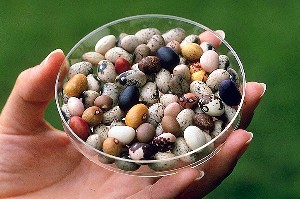Nestlé, the global food and health products company based in Switzerland, announced today the creation of Nestlé Health Science S.A. and the Nestlé Institute of Health Sciences to expand the company’s industrial presence in nutrition and wellness. Nestlé says the two new organizations — one an operating division and the other an R&D center — will allow Nestlé to further develop its capabilities in the new field of personalized health science nutrition to prevent and treat conditions such as diabetes, obesity, cardiovascular disease and Alzheimer’s disease.
Nestlé Health Science S.A. will be a subsidiary of Nestlé S.A., and is scheduled to begin on 1 January 2011. The company says new operation will be run at arm’s length from Nestlé’s main food, beverage, and nutrition activities, and incorporate the existing global Nestlé HealthCare Nutrition business, which had sales of CHF 1.6 billion (USD 1.63 billion) in 2009. Nestlé Health Science S.A. will also have access to scientific and technological assets through Nestlé’s internal networks as well as venture capital funds in which the group has interests.
The separate Nestlé Institute of Health Sciences will be part of the company’s R&D network. Nestlé says it plans to invest hundreds of millions of Swiss francs over the next decade to build the Institute of Health Sciences’ capabilities, which will conduct research in relevant areas of biomedical science to translate this knowledge into nutritional strategies to improve health and longevity. Nestlé will base the institute in the scientific environment of the Swiss Federal Institute of Technology (EPFL) in Lausanne, where Nestlé is already involved in two life science initiatives.
Martin Enserink of Science magazine reports that health foods, personalized or otherwise, are difficult to prove that they work, and have so far received little support from the European Food Safety Agency. Enserink says at a press conference today announcing the initiatives, CEO Paul Bulcke did not directly answer a question today about how Nestlé’s products would avoid that same result.


 RSS - Posts
RSS - Posts
some of the health foods that i always eat are those gluten free foods
health foods that are organice and have natural source should be the stuff that we should take .;;